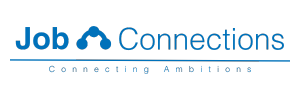Your Professional Year in Review
Why it’s important and how to organize it
As the year slowly draws to an end and a new one is just around the corner, it can be helpful to review the old year. This applies to your private life as well as your professional one. A conscious review of your professional past year can help you keep an eye on your development, celebrate successes, understand challenges and set clear goals for the future.
In this article, you’ll discover the benefits of reflecting on the past few months and how you can organize this process.
Why a Year in Review makes sense
– Making successes visible: In reflection, we (re)realize what we have often forgotten. A review helps us to consciously recognize professional milestones. At the same time, these successes can be analyzed and the strategies and actions that led to them can be identified. The knowledge gained can then be transferred to future goals.
– Learning from mistakes: Challenges and setbacks also offer valuable lessons. Realizing your own mistakes and admitting them to yourself is an important step towards change. This allows you to avoid making mistakes in similar situations in the future. Self-reflection also helps you to recognize your own strengths and weaknesses, which in turn has a supportive effect in challenging situations.
– Focus on the future: Looking back and reflecting on the past is the basis for defining professional goals for the coming year. Working methods and processes can be optimized and professional goals can be reviewed and adjusted. The findings from the past months serve as a guide for the coming year, with all its opportunities and challenges.
Steps for a successful Year in Review
The only question is, where do you start and what helps you to set these reflections in motion? What you definitely need is enough time, without distractions and interruptions. It’s best to take your calendar or, if you have one, your diary and get an overview of big and small decisive moments. Avoid judging events too much and concentrate on simply noticing what has happened this year and what has made it stand out. Write down everything you notice and want to record, preferably on paper. Writing by hand has been proven to improve our ability to concentrate and organize as well as structure our memories. You can use a timeline to visualize events and milestones. Sometimes it can also help to involve someone who knows you well. We have summarized questions that can help you analyze your year in a PDF.
1. Celebrate successes
Write down what you have done particularly well, and don’t forget about small successes. Perhaps you have completed a project, learnt new skills or received good feedback.
Tip: Create a ‘highlight list’ with the best moments of your year.
2 Analyze failures
Not everything always goes smoothly, and that’s okay. Even if it’s unpleasant, be sure to look at your failures. Whether it’s a deadline you couldn’t meet, a missed career opportunity or a conflict with a superior – you can learn a lot from them. Use the following key questions as a guide:
– What challenges did you overcome?
– What could you have done better?
– What lessons have you learnt?
3. Networking
Think about how your professional network has supported you throughout the year, whether through new professional opportunities, inspiration or feedback. Which new contacts have you made and which networks built? Use this time to thank colleagues, mentors or clients who have supported you. And think about how you can expand and deepen your network in the new year.
4. Reset your professional goals
If you have set yourself goals for this year, now check whether you have achieved them and what has helped or hindered you? Think about which of the set goals you want to take with you into the next year, and reflect on where you currently are and where you journey shall lead you:
– Are there any new skills you want to learn?
– Are you planning a career move?
– What can you do specifically to achieve your goals?
5. Let go and start the new year motivated
Consciously end the year by letting go of what has weighed you down, appreciating what you have achieved and starting the new year on a positive note.
Practical tools for your review
– Zero-based thinking: This method can be very effective when reflecting on the past year. It involves re-evaluating old decisions and habits as if you were making them today. So ask yourself this question: Would I make this decision again today?
○ Which projects have helped you progress and which haven’t? Would you take on similar projects again?
○ Do you feel fulfilled in your professional role? If not, would further training change that or should you think about changing jobs?
Zero-based thinking helps you to shed baggage and focus on what really gets you ahead. Furthermore, you will gain clarity about habits that might simply be continued unquestioningly, allowing you to correct past decisions and implement them differently in the future.
– Gratitude diary: This is about regularly noting down what you are grateful for. The rhythm and extent of the entries are entirely up to you – whether daily, weekly or monthly, a short sentence, a detailed description or simply a photo as a reminder. Whether small or large professional successes, an exciting training programme, support from colleagues or praise from management. Why does it make sense to keep or start a gratitude diary? Gratitude reduces stress and promotes resilience, which is particularly valuable in everyday working life. It can also help you to deepen your professional contacts and, as numerous studies have shown, generally contributes to greater well-being.
Tip: There are also great apps that provide templates for your entries and don’t let you forget them!
Conclusion
Your professional Year in Review is not just about self-reflection, it is also an opportunity to consciously shape your development in terms of your career. By pausing, celebrating successes, analyzing failures and setting new goals, you can start the new year motivated and focused.

